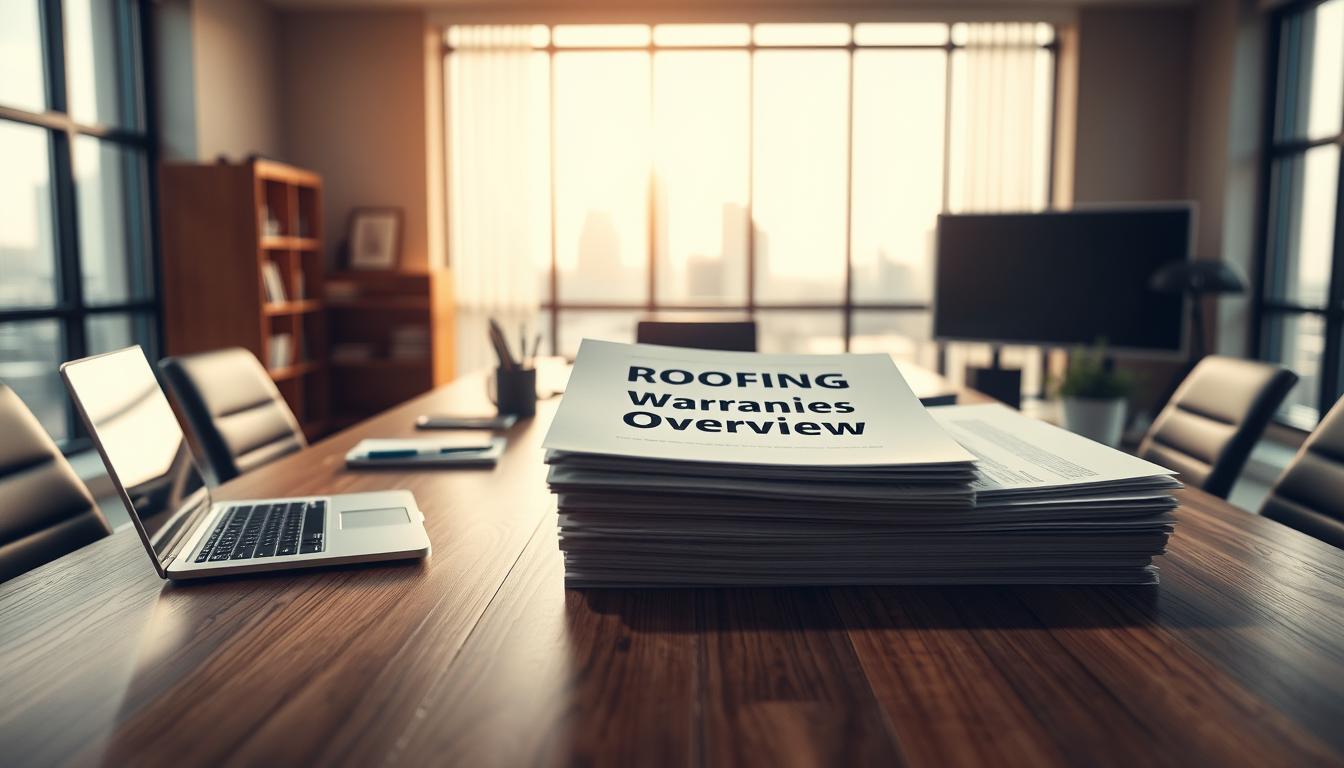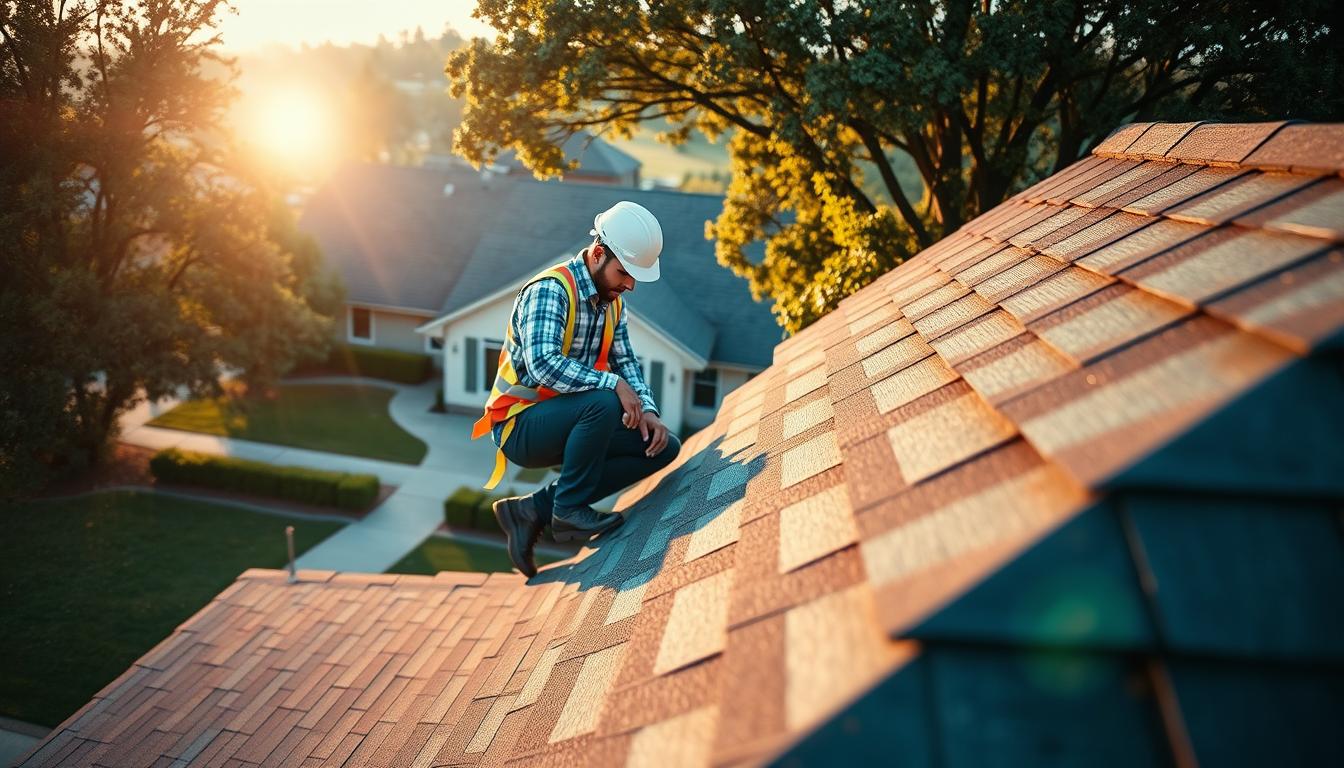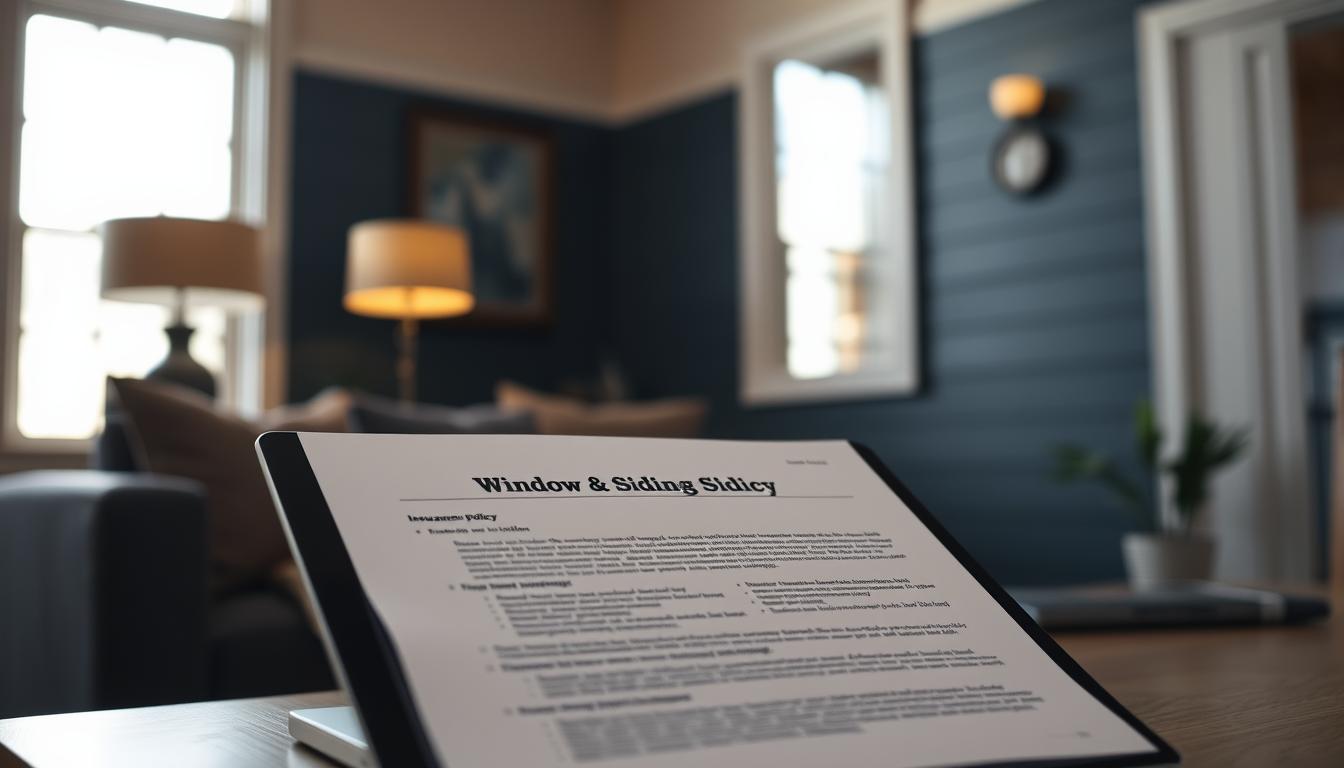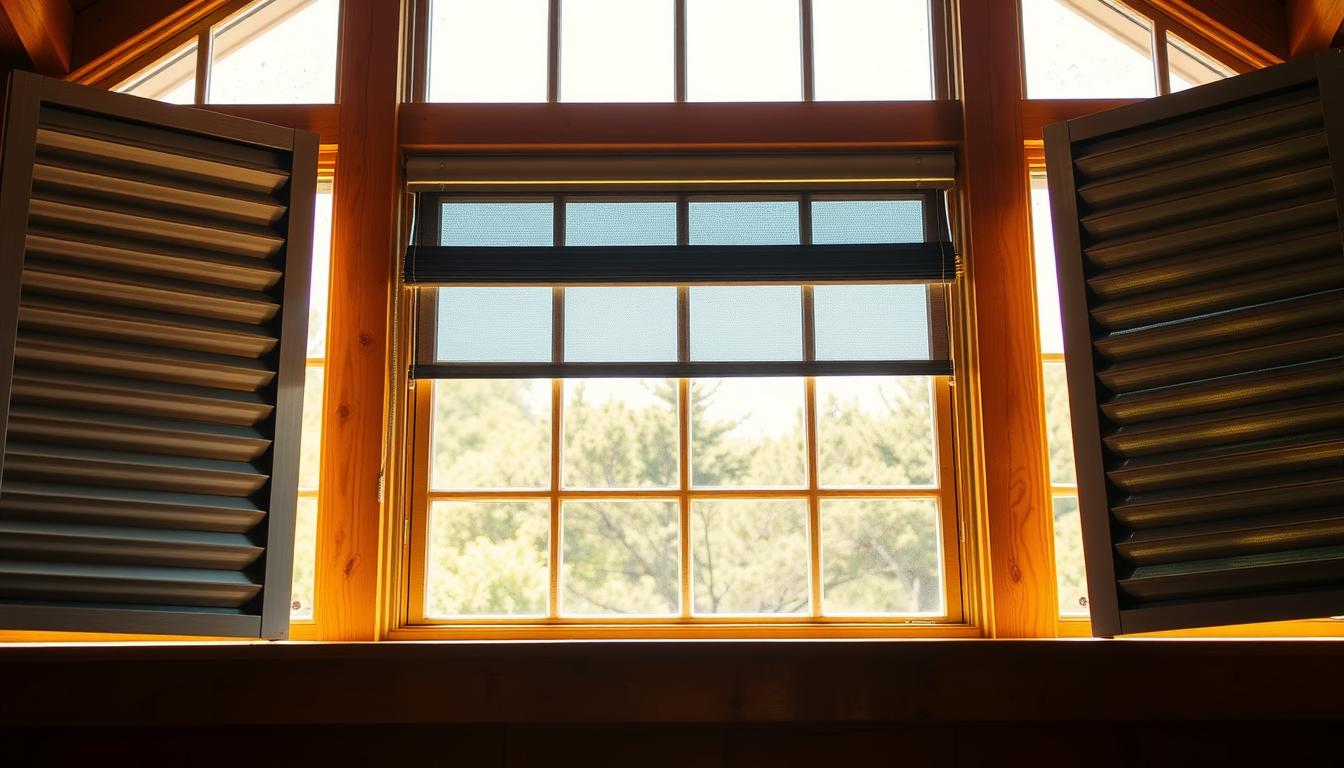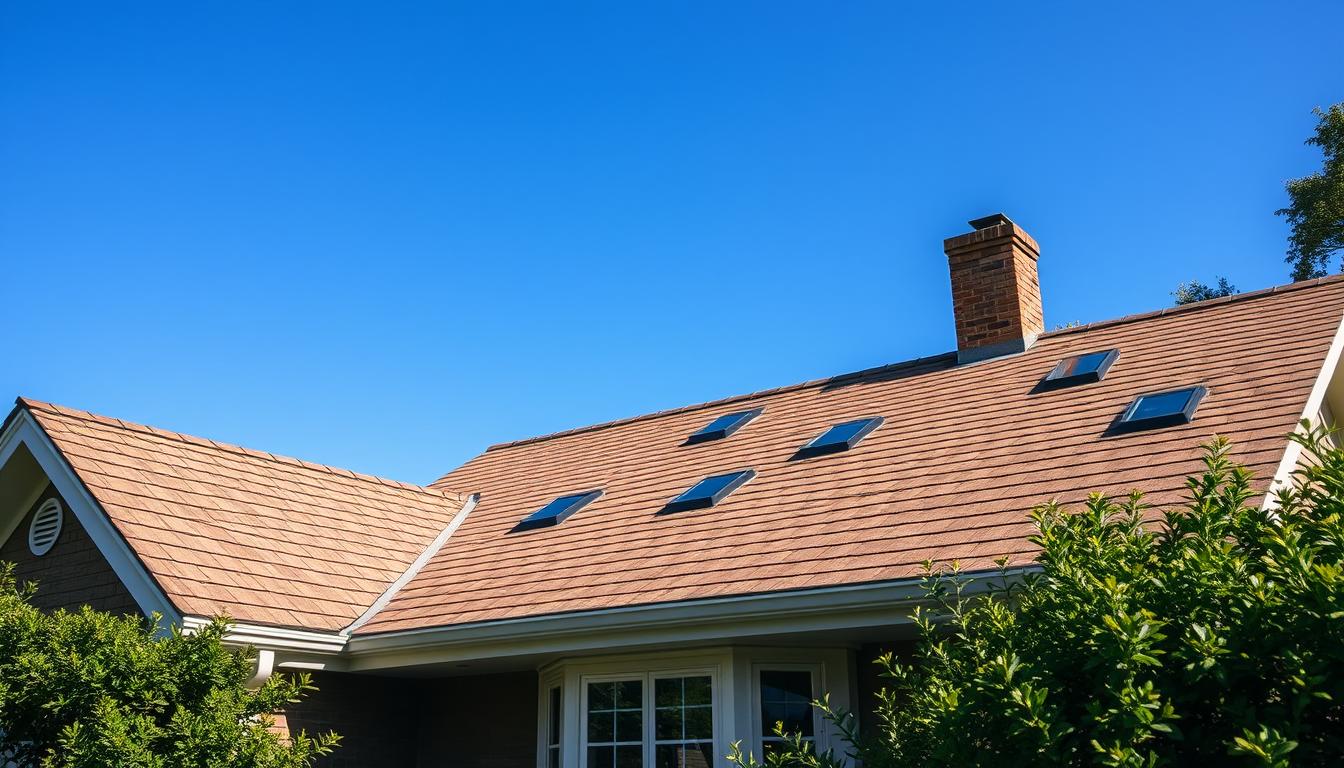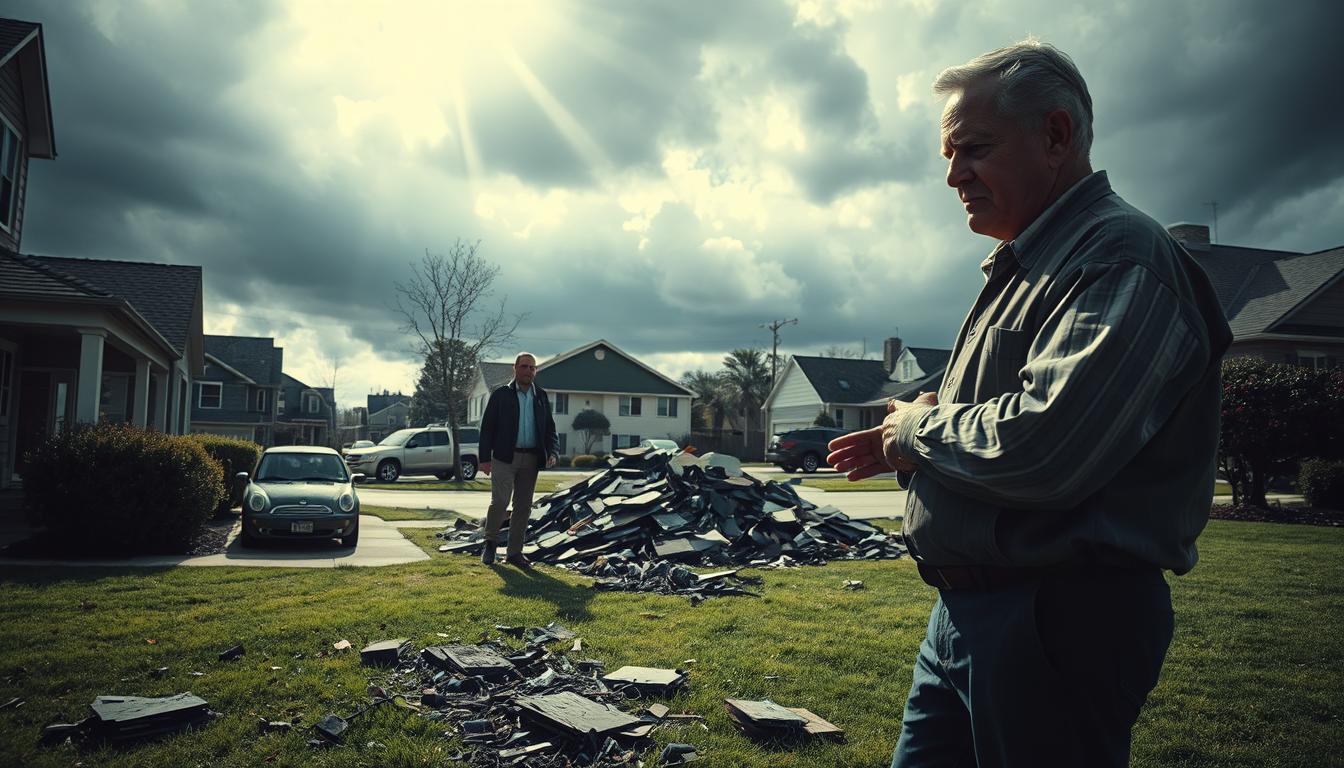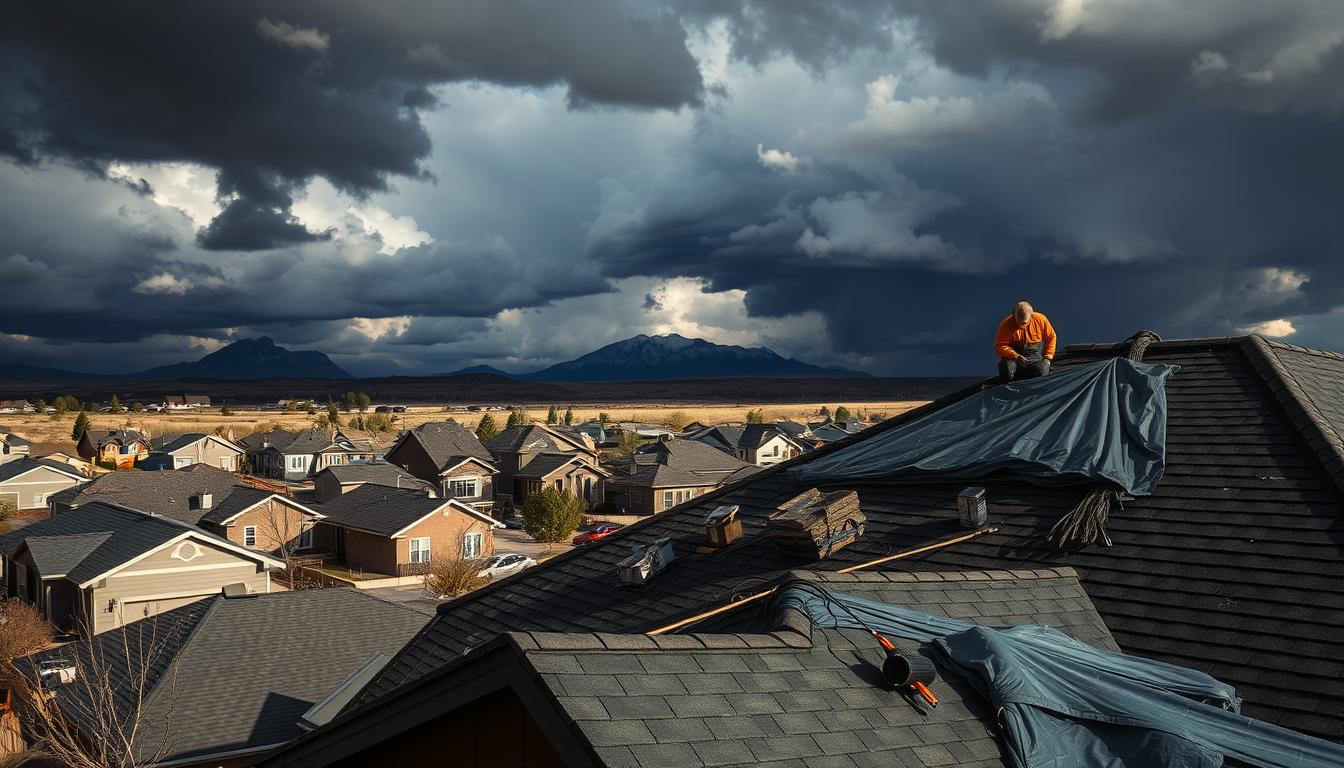Roofing warranties are key for homeowners who replace or repair their roofs. The Rich Co Inc offers top-notch roof warranty coverage. This helps protect big investments in homes with detailed protections from manufacturers and contractors.
Roofing warranties cover two main areas: material warranties from makers and workmanship warranties from builders. These warranties ensure homeowners get quality protection against defects and installation issues.
Knowing about roof warranty coverage can save homeowners a lot of money. Different materials and makers offer various protections, from 20 to 50 years.
Key Takeaways
- Roofing warranties protect against material defects and installation issues
- Coverage ranges from 2 to 50 years depending on manufacturer and contractor
- Most warranties are prorated after 10-20 years
- Workmanship warranties average around 10 years
- Proper roof maintenance is crucial for warranty validity
The Importance of Roofing Warranties for Homeowners
Keeping your home safe is more than just keeping it looking good. Roofing warranties are a key part of protecting your home. They cover one of the biggest investments in keeping your property in top shape. An asphalt roof can last about 25 years, making good warranties a must for long-term protection.
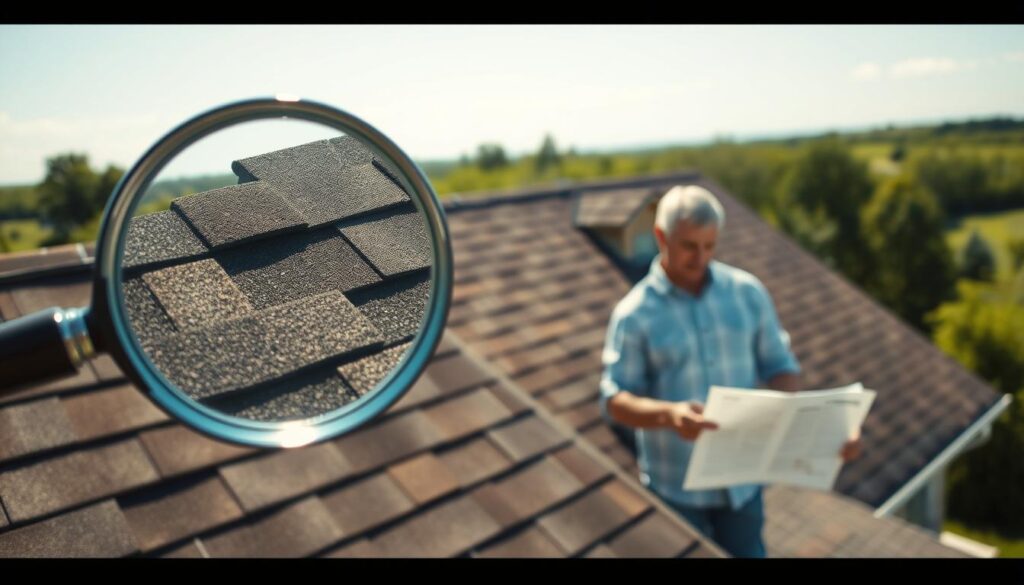
- Financial protection against unexpected repair costs
- Assurance of quality installation and materials
- Enhanced home value and marketability
- Peace of mind during extreme weather conditions
Protecting Your Significant Investment
Roofing is a big financial deal. Comprehensive warranty coverage keeps your investment safe from material flaws or installation mistakes. With warranties lasting about 25 years, you can trust your roof to last and perform well.
Peace of Mind for Property Owners
Having a roof with reliable warranties means less worry. Good roofing companies offer warranties that cover both materials and workmanship. This gives homeowners full protection against any problems.
Home Value Protection Benefits
A strong roofing warranty can really boost your home’s value. Buyers see warranties as a plus, making your home more attractive and valuable.
Types of Standard Roofing Warranties
Protecting your home’s roof is key. Knowing about warranties is important. There are mainly two types: manufacturer warranties and workmanship warranties.

Manufacturer warranties cover the roofing materials. They last from 25 to 50 years, based on the quality. Key points of these warranties include:
- Coverage for defective roofing materials
- Protection against premature shingle failure
- Varying levels of prorated and non-prorated coverage
Workmanship warranties, given by roofing contractors, protect against installation mistakes. These warranties usually last from 2 to 25 years. Some contractors offer lifetime guarantees.
Getting both types of warranties offers the best protection. This way, both materials and installation are covered. Homeowners get peace of mind.
- Standard workmanship warranties usually cover 1-2 years
- Extended warranties can protect up to 10 years
- Certification of the contractor is essential for warranty validity
Choosing the right warranty is important. Consider the materials, contractor skill, and your protection needs. Always read the fine print to know what’s covered.
Material Manufacturer Warranties Explained
Roofing warranties protect homeowners from unexpected material defects and performance issues. Understanding these warranties can save a lot of money. It also gives peace of mind for your home’s most critical protective layer.
Manufacturers offer different warranty terms based on the roofing material. The warranty claims process varies widely between product types and brands. It’s crucial to read the fine print carefully.
Coverage Duration and Terms
Roofing material warranties usually last from 25 to 50 years. They come with specific conditions:
- 3-tab asphalt shingles: 25-year limited warranty
- Architectural shingles: 30-year prorated warranty
- Metal roofing: Up to 30-year finish warranty
- Synthetic shingles: Limited lifetime warranty
What Manufacturer Warranties Include
Extended warranties often cover more than standard options. Key components typically include:
- Material defect protection
- Wind resistance coverage
- Algae resistance guarantees
- Potential transferability to new homeowners
Prorated vs. Non-prorated Coverage
Understanding warranty types is critical for homeowners. Prorated warranties decrease in value over time. Non-prorated warranties maintain full coverage for a specific period. Some manufacturers like DaVinci offer non-prorated coverage for the first 10 years, providing robust initial protection.
Always register your warranty promptly and maintain proper documentation. This ensures extended warranties remain valid throughout their intended term.
Workmanship Warranties and Contractor Guarantees

Roofing warranties are more than just about materials. They also protect against installation mistakes that could harm your roof. These warranties last from 2 to 25 years. Top contractors offer strong protection for your home.
Choosing the right roofing contractor is key. Look for one who offers a solid workmanship warranty. This warranty covers mistakes in:
- Roof flashing installation
- Proper sealing techniques
- Ventilation system implementation
- Shingle alignment and attachment
- Structural integration
Experts say to look for a contractor with at least a 10-year warranty. This shows they trust their work and protect you from mistakes. Over 70% of roof problems come from how it was installed, not the materials.
Good roofing warranties cover costs for fixing installation mistakes. Some contractors even offer lifetime guarantees. This shows they’re dedicated to quality and making you happy.
When looking at roofing warranties, check:
- Coverage duration
- Specific types of installation errors included
- Repair or replacement terms
- Maintenance requirements
- Potential transferability options
Choosing a contractor with a good workmanship warranty means your roof will protect your home well.
Enhanced and Extended Warranty Options
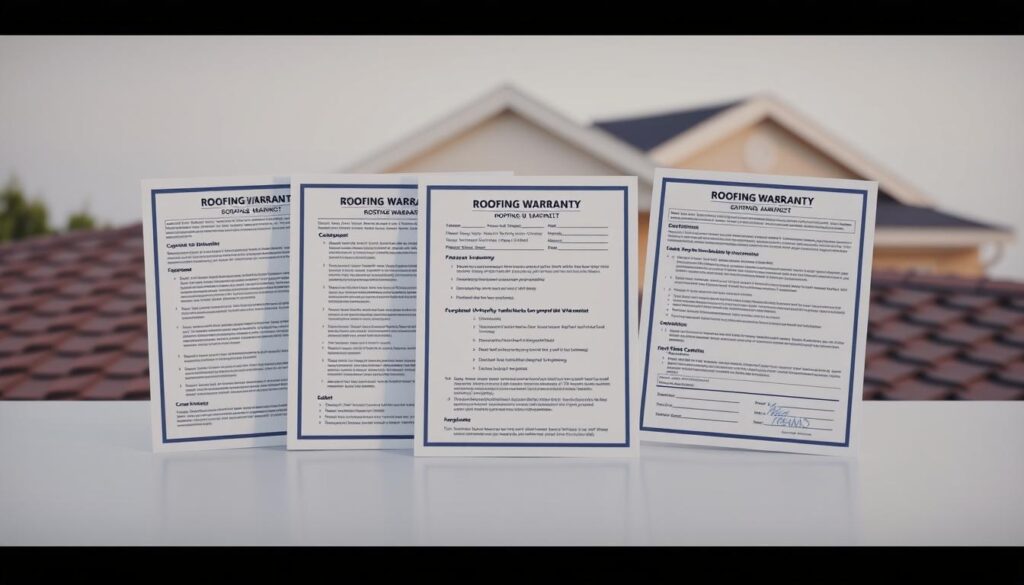
Roofing warranties have changed a lot. Now, they offer more than just basic protection. They include extra benefits that can save you money and give you peace of mind.
Today, homeowners can get premium warranty packages. These go way beyond what old warranties offered. They usually include:
- Longer coverage periods
- More comprehensive material protection
- Expanded repair and replacement options
Premium Coverage Benefits
Extended warranties offer big advantages. Lifetime warranties cover your home for as long as you own it. Some manufacturers even offer coverage up to 50 years if you meet certain installation standards.
Warranty Transfer Privileges
Warranty transfers are great for homeowners who want to sell their property. Some warranties let you transfer coverage to new owners, which can boost your property’s value. It’s important to register your warranty correctly to keep these transfer rights.
Registration Requirements
To get the best warranty coverage, you need to register correctly. Here are the main steps:
- Register within a set time after installation
- Use only certified contractors
- Keep all important documents
- Have regular inspections by professionals
The Rich Co works with insurance companies to get you the best warranty coverage. This ensures your roofing investment is well-protected.
Common Warranty Exclusions and Limitations
It’s important for homeowners to know what their shingle warranties cover. Roofing warranties often have specific rules that might surprise you. Knowing what’s not covered can help avoid unexpected costs.
Most roofing warranties have important limits that homeowners need to check:
- Extreme weather events are usually not covered
- Not following the right maintenance can cancel your warranty
- Standard warranties rarely include damage from natural disasters
- Damage from walking on the roof might not be covered
Warranties from manufacturers often don’t cover many important cases. Wind damage warranties usually specify maximum wind speeds between 120 and 150 miles per hour. If winds are stronger, you’ll have to pay for repairs yourself. Problems like granule loss, cracking, and curling might be due to a defect, but hail damage is often not included.
Roofing contractors suggest keeping good records and regular maintenance to keep your warranty valid. Extended warranties offer more protection, but they have their own rules. Homeowners should:
- Read warranty terms carefully
- Keep detailed maintenance records
- Have regular professional checks
- Fix any issues quickly
Knowing what’s not covered helps homeowners make better choices about their roofs. It also helps avoid unexpected costs.
Maintaining Your Warranty’s Validity
To keep your roofing warranty valid, you need to maintain your roof well and keep records. Warranties can last from 2 to 30 years. How long they last depends on how you take care of your roof.
It’s important to get your roof checked by professionals every six months and after big weather events. The Rich Co in Colorado Springs says to keep records of all maintenance and repairs. This helps keep your warranty in good shape and avoids surprises.
Doing regular maintenance like cleaning gutters and fixing small problems can help a lot. Local roofing services know what challenges your area faces. They can give you the right advice. If you notice any issues, tell the manufacturer right away to keep your warranty strong.
Getting your roof checked by experts like The Rich Co makes sure it’s up to standard. Knowing what your warranty needs helps homeowners in Colorado Springs. This way, you can keep your roof covered for many years.

